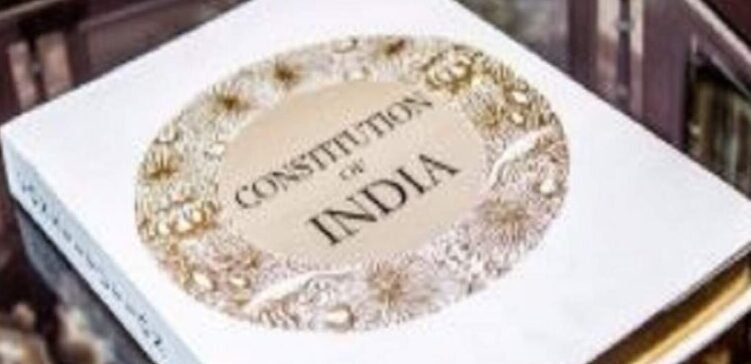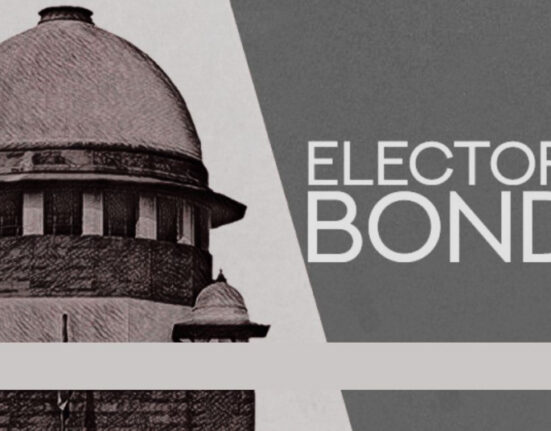Article 16 of Indian Constitution: 16. Equality of opportunity in matters of public employment.
16. Equality of opportunity in matters of public employment.
- There shall be equality of opportunity for all citizens in matters relating to employment or appointment to any office under the State.
- No citizen shall, on grounds only of religion, race, caste, sex, descent, place of birth, residence or any of them, be ineligible for, or discriminated against in respect of, any employment or office under the State.
- Nothing in this article shall prevent Parliament from making any law prescribing, in regard to a class or classes of employment or appointment to an office under the Government of, or any local or other authority within, a State or Union territory, any requirement as to residence within that State or Union territory prior to such employment or appointment.
- Nothing in this article shall prevent the State from making any provision for the reservation of appointments or posts in favor of any backward class of citizens which, in the opinion of the State, is not adequately represented in the services under the State.
- (4A) Nothing in this article shall prevent the State from making any provision for reservation in matters of promotion, with consequential seniority, to any class or classes of posts in the services under the State in favour of the Scheduled Castes and the Scheduled Tribes which, in the opinion of the State, are not adequately represented in the services under the State.
- (4B) Nothing in this article shall prevent the State from considering any unfilled vacancies of a year which are reserved for being filled up in that year in accordance with any provision for reservation made under clause (4) or clause (4A) as a separate class of vacancies to be filled up in any succeeding year or years and such class of vacancies shall not be considered together with the vacancies of the year in which they are being filled up for determining the ceiling of fifty per cent. reservation on total number of vacancies of that year.
- Nothing in this article shall affect the operation of any law which provides that the incumbent of an office in connection with the affairs of any religious or denominational institution or any member of the governing body thereof shall be a person professing a particular religion or belonging to a particular denomination.
- 1[(6) Nothing in this article shall prevent the State from making any provision for the reservation of appointments or posts in favour of any economically weaker sections of citizens other than the classes mentioned in clause (4), in addition to the existing reservation and subject to a maximum of ten per cent. of the posts in each category.](the Constitution (One Hundred and Third Amendment) Act, 2019)
Explanation of Article 16 of Indian Constitution
Article 16 (1) and (2) applies only in respect of employment or office under the State. Clause (3), (4), (4-A), (4-B), (5) of Article 16 provide four exceptions to this general rule of equality of opportunity.
Article 16(1) states that there shall be equal opportunity for the citizens in the matter of employment or appointment to any office under the State. The provision of equality is only applicable to the employment or offices which are held by the State. The State is still free to lay down the requisite qualifications for the recruitment of employees for the Government services.
Article 16(2) lays down the grounds on which the citizens should not be discriminated against for the purpose of employment or appointment to any office under the State. The prohibited grounds of discrimination under Article 16(2) are religion, race, caste, sex, descent, birthplace, residence, or any of them.
It is stated in clause 3 of Article 16 that nothing in this article shall prevent Parliament from making any law which prescribes to the citizens who are appointed to any office under the State in regard to any requirements as to residence within that State or Union territory prior to employment or appointment to any office under the State.
Article 16(4) of the Indian constitution provides for the reservation of services under the State in favor of the backward class of citizens.
Clause (4) enables the State to make provision for the reservation of posts in government jobs in favour of any backward class of citizen which, in the opinion of the State, is not adequately represented in the services of the State.
The newly added clause (4-A), added by 77th Amendment, 1955, empowers the State to make any provision for the reservation in matters of promotions of SCs and STs which, in the opinion of the State, are not adequately represented in the services of the State.
In recent case of Jarnail Singh v. Lachhmi Narain Gupta and Other Connected Matters, SLP(c) No.30621/2011 Citation : 2022 LiveLaw (SC) 94: The Supreme Court stated that “Before providing for reservation in promotions to a cadre, the State is obligated to collect quantifiable data regarding inadequacy of representation of SCs and STs”.
The Court further held –
“Collection of information regarding inadequacy of representation of SCs and STs cannot be with reference to the entire service or ‘class‘/’group‘ but it should be relatable to the grade/category of posts to which promotion is sought. Cadre, which should be the unit for the purpose of collection of quantifiable data in relation to the promotional post(s), would be meaningless if data pertaining to representation of SCs and STs is with reference to the entire service.”
The Constitution (81st Amendment) Act, 2000 has added a new clause (4-B) in Article 16 which seeks to end the 50% limit for Scheduled Castes and Scheduled Tribes and other Backward Classes in backlog vacancies which could be filled up due to the non availability of eligible candidates of these categories in the previous year or years.
Important Amendments with reference to Article 16 are 77th, 81st, 85th, and 101 Constitutional Amendments.
The 77th and 81st amendments are considered as technical amendments to protect reservation to SC/ST employees in promotions and in filling backlog of vacancies.”
It was through the 85th amendment of the Constitution that Article 16 (4A) was inserted and amended to give state the power “to provide quota in promotions with consequential seniority.” The clause 4A was inserted after the Supreme Court observed that the reservation of appointments/posts under Article 16(4) is restricted to initial appointment and it cannot extend to reservation in the matter of promotion.
While upholding the insertion of clause 4A, the Supreme Court imposed a condition – every time a government wants to exercise its power under Article 16(4A), “it must take up a specific exercise to demonstrate that the SCs/STs were not adequately represented.”
As the Supreme Court verdict in M. Nagaraj v. Union of India made it compulsory for the government to demonstrate the backwardness of SC/ST beneficiaries every time reservations were provided for promotion, it took another stand, which was heavily criticized for lacking constitutional merit. In its judgment, the apex court had observed that individuals “in the ‘creamy layer’ of OBCs” don’t have the right to be the beneficiaries of the reservation policy. However, the court held that no such exclusion would be applicable for SCs/STs.
The 117th Constitution Amendment Bill was passed to clarify that all SCs/STs are deemed to be backward.
The 103rd Constitution Amendment Act provides for 10% reservation in government jobs and educational institutions for the economically weaker section in the unreserved category.
Also Read : Indian Constitution Article 15
You can read all latest update regarding Article 16 here
![]()







Leave feedback about this